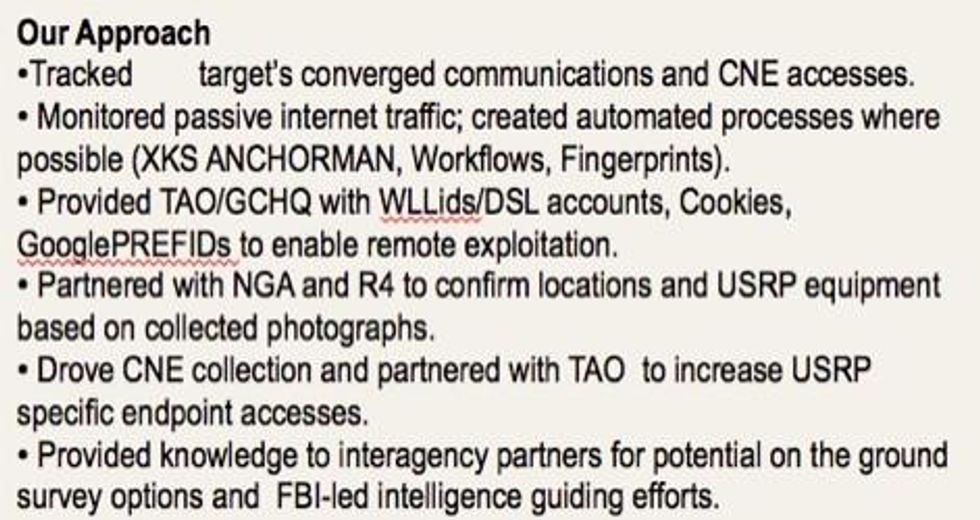You know those pesky companies that track internet users' online activity to scoop information on potential consumers and deliver tailored ads?
It turns out they are not alone.
Internal National Security Agency documents provided by Edward Snowden reveal that the NSA and British intelligence agency GCHQ are using Google "cookies" to track and spy on potential targets.
The Washington Post explains,
The intelligence agencies have found particular use for a part of a Google-specific tracking mechanism known as the "PREF" cookie. These cookies typically don't contain personal information, such as someone's name or e-mail address, but they do contain numeric codes that enable Web sites to uniquely identify a person's browser.
In addition to tracking Web visits, this cookie allows NSA to single out an individual's communications among the sea of Internet data in order to send out software that can hack that person's computer. The slides say the cookies are used to "enable remote exploitation," although the specific attacks used by the NSA against targets are not addressed in these documents.
According to the report, the NSA does not use this technology to sort through vast amounts of online data, but rather to key in on people already under suspicion.
The NSA's online snooping is not limited to computers. The report explains:
Separately, the NSA is also using commercially gathered information to help it locate mobile devices around the world, the documents show. Many smartphone apps running on iPhones and Android devices, and the Apple and Google operating systems themselves, track the location of each device, often without a clear warning to the phone's owner.
An excerpt from an NSA slide detailing this online snooping can be viewed below.
_____________________




